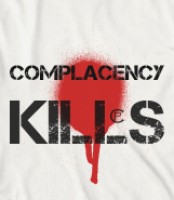- Home
- |
- About Us
- |
- Working Groups
- |
- News
- |
- Rankings
- WEF-Global Competitiveness Report
- Ease of Doing Business Report
- IMD-World Competitiveness Yearbook
- TI-Corruption Perceptions Index
- HF-Economic Freedom Index
- WEF-Global Information Technology Report
- WEF-Travel and Tourism Report
- WIPO-Global Innovation Index
- WB-Logistics Performance Index
- FFP-Fragile States Index
- WEF-Global Enabling Trade Report
- WEF-Global Gender Gap Report
- Gallery
- |
- Downloads
- |
- Contact Us
‘Competition never sleeps’ (SunStar Cebu)
If it can make the necessary changes in government, the National Competitiveness Council (NCC) aims to get and improve the Philippine rankings in different competitiveness surveys around the world.
NCC co-chairman Guillermo Luz, who was in Cebu Thursday for the NCC Roadshow, said they will focus on the country’s worst performance in the different indicators of the surveys and try to come up with solutions.
Its goal is to get the Philippines ranked 30th in the World Economic Forum’s (WEF) Global Competitiveness Survey, 50th in the International Finance Corp. (IFC) Doing Business Survey, 20th in the IMD Business School’s World Competitiveness Report and 30th in the Future Brand’s Country Brand Index, all by the end of 2016.
If the country’s current ranks are to be considered, the Philippines has a long way to go if it wants to meet such targets.
Its performance in the 2011-2012 period showed that the country ranked 65 out of 144 countries in the WEF survey, 138 out of 185 in the IFC survey, 43 out of 59 in the IMD report and 78 out of 113 in the Future Brand index.
Overtaken
What Luz also finds more discouraging is how the Philippines ranks against its neighbors in Southeast Asia.
Among member-countries of the Association of Southeast Asian Nations (Asean), the Philippines is sixth out of eight in the WEF’s survey, the last out of eight in the IFC report, the last out of five in the IMD report and 15th out of 20 in the Asia-Pacific region in the Future Brand index.
 “In the IFC report, even Cambodia has overtaken us. This is really, completely shameful. It happens when we’re complacent. Complacency kills,” said Luz, who let members of Cebu’s business community stare at the figures for a while to allow the dismal performance to sink in.
“In the IFC report, even Cambodia has overtaken us. This is really, completely shameful. It happens when we’re complacent. Complacency kills,” said Luz, who let members of Cebu’s business community stare at the figures for a while to allow the dismal performance to sink in.
Cambodia ranked 133, ahead of the Philippines. The top-performing country in the IFC report was Singapore, which has remained in the top spot since 2009. It was followed by 12th ranked Malaysia, Thailand in the 18th spot, Brunei Darussalam at 79, Vietnam at 99 and Indonesia at 128. The only other country below the Philippines in Asean is Laos, which ranked 163.
As for the WEF report, the Philippines only overtook Vietnam and Cambodia. And while it jumped 10 places from 85 the previous year to 75, Luz warned that the Philippines cannot rest, citing Cambodia’s 12-step climb from 97 to 85.
Luz also said that the better-performing countries still continue to improve, citing Singapore’s dominance by staying in the top spot for several years and Malaysia moving up a few notches even during a year where its economy suffered.
“The competition never sleeps. The bar always rises. We move up a weight class and meet larger, stronger competition,” he said.
The Philippines ranked the lowest in Asean in at least 20 indicators from the WEF report, said Luz. These are in the number of procedures to start a business, business cost of terrorism and crime, burden of customs procedures, quality of port and air transport infrastructure, flexibility of wage determination, and hiring and firing practices.
It also scored low in the efficiency of the legal framework in settling disputes and challenging regulations, total tax rates, quality of scientific research institutions and several others involving the judiciary, education and governance.
The plan for this year until 2013 is to continue tracking global reports and inclusion in performance evaluation systems, create regional and local competitiveness councils for comparison with the national and international locations, and prepare industry road maps.
original source: www.sunstar.com.ph

